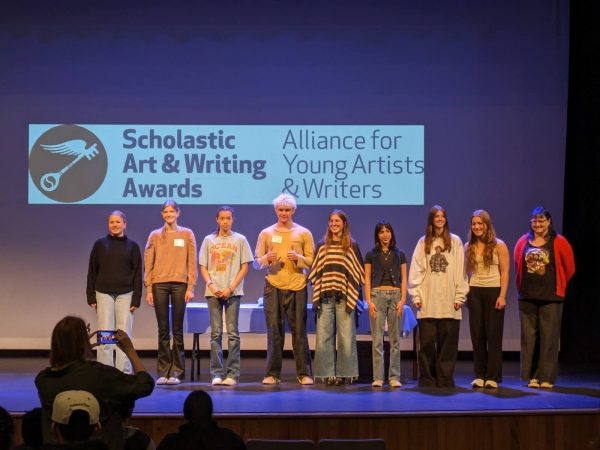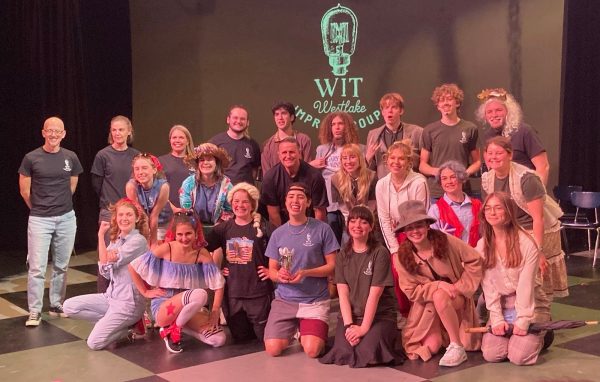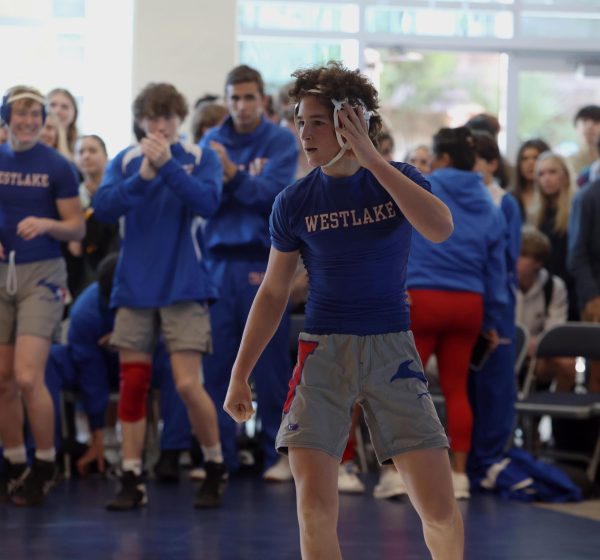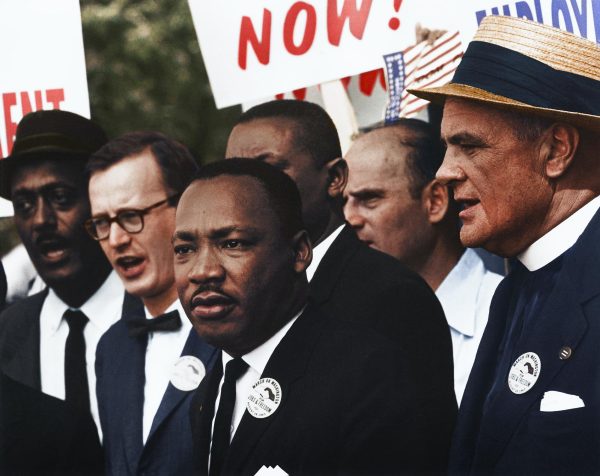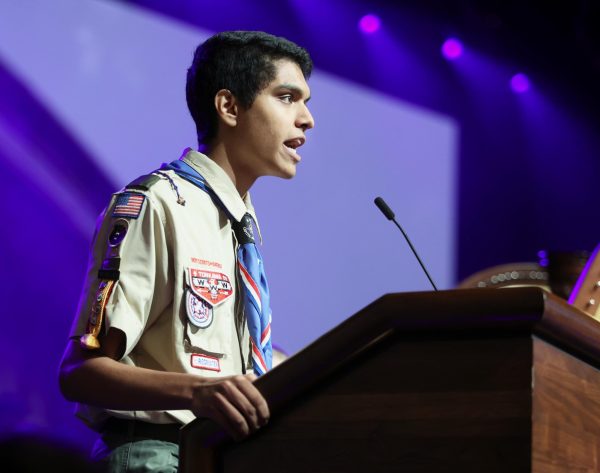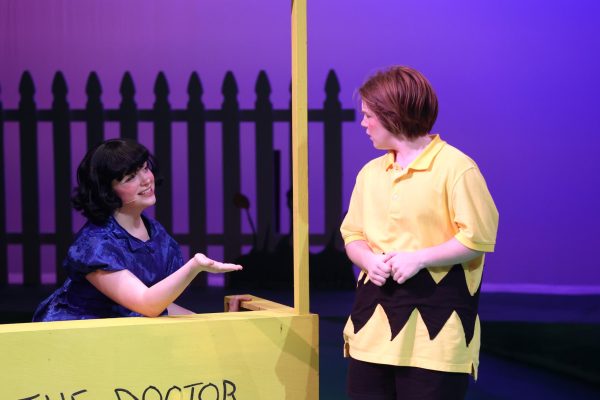Model UN travels to Washington, D.C., wins awards in international convention
On Feb. 16-19, 27 students attended the North American Invitational Model United Nations conference in Washington, D.C. Of approximately 3,500 students who participated in the conference, the Chaps brought home six awards, including one Verbal Commendation, two Honorable Delegates and three Outstanding Delegates.
Among the Outstanding Delegates was senior Benjamin Roberts, who represented Senator Mike Johanns from Nebraska in the model U.S. Senate committee.
“We go to about nine conferences a year,” Benjamin said. “They are mainly with Texans, so it was interesting going to the North American Invitational in D.C. It was an international conference, so there were a lot of people from all over the United States, but there were also people from China, the UK and Australia there. They have special committee rooms for Spanish speakers, but most people speak English in Model UN. Sure, people treat you differently if you say ‘y’all,’ but we are all definitely more similar than we are different.”
When the students got to NAIMUN, they split up into different rooms based on their assigned committees. Each committee had anywhere from 20 to 400 delegates in it, depending on the real UN committee after which it was modeled.
“Westlake got there, and most of us were in different committees,” Benjamin said. “Some of us were on double delegations — [seniors] Jason Zhao and Campbell Erickson were a double delegation representing one country, and larger committee rooms tend to do that. I went as my own single delegation because my committee was smaller — only 100 delegates instead of 400 or so.”
Benjamin participated in the Model U.S. Senate committee room, which consisted of one delegate for every senator in the United States. In a series of debates and discussions, Benjamin worked with his other delegates to write resolutions and bills similar to those which the Senate would write in real life. They then voted on and passed the bills and created solutions to problems that arose.
“Model UN works through a parliamentary procedure based on an adapted version of English Robert’s rule of order,” Benjamin said. “It’s similar to the procedure that the actual UN uses. Basically, everyone is seated in the room facing in one direction, and at the front is a chairperson. Each delegate has a placard with his or her name on it, and through a series of moderated and unmoderated caucuses, a speaker’s list and lots of other devices to keep the flow of debate, speakers will raise their placards, and the chair will call on them to debate.”
Even outside the committee rooms, the delegates spent a lot of time working on resolutions with what they call their “blocks.”
“A block is the group of people that you tend to work with in your committee,” Benjamin said. “So for me, because I was representing a republican senator, I would work with other republican senators. We got up at 6 a.m. before committee to write work that we would use later in the committee room. The cool thing about Model UN is that most of the people that are there are very dedicated and willing to do that.”
To Benjamin, however, Model UN is about more than the research that goes into it making resolutions. In order to successfully put your mark on your committee, you need to have more than just knowledge of the government that you are representing.
“When you go to Model UN, whether you are representing a senator or a country on the security council or something, you have to have a combination of the ability to speak and the ability to implement policy that is consistent with that of whom you are representing, while also bringing your own creative aspects to it,” Benjamin said. “None of my own political ideology goes into representing the republican senator from Nebraska, but I was still able to use parts of my personality and skills that I have gained from Model UN that I have unique to myself.”
The awards that were allocated at the conference were determined by the chairpeople, the directors and the other members of the dais. However, Benjamin and the other Westlake delegates were less concerned about trophies and more concerned about the experience that they could take away from the conference.
“It’s not really about the awards,” Benjamin said. “Here at Westlake, we don’t even talk about the awards until the second semester, because it’s about writing the best resolutions that we can, and by doing that, we tend to win a lot of awards.”
Looking back at the NAIMUN conference and at his Model UN experience as a whole, Benjamin is optimistic about what’s to come for the program.
“This is my third year with Model UN,” Benjamin said. “[NAIMUN] was definitely a great experience to start off my last semester of senior year. It made me feel very good about the future of Westlake Model UN, and I just want to leave encouraging other people to check out Model UN — just drop in on a meeting. I heard about it on the Chap Recap sophomore year second semester, and I went into a meeting. Now I am an officer in the club, and I never thought that would happen. So if you’re interested, show up.”


![Festival goers gather on the Zilker Park lawn for a day of kite flying, entertainment, and food at the ABC KiteFest Sunday, April 14. “It was super fun to watch people flying their kites and also fly my own,” Tucker said. “[KiteFest] is always a highlight of my year and I plan to return every year moving forward.”](https://westlakefeatherduster.com/wp-content/uploads/2024/04/kite-600x450.jpeg)
![The Wind Ensemble, conducted by director Kerry Taylor, plays in the Performing Arts Center Wednesday, Mar 27. “Some challenges we face with our music are always solved through our weekly sectionals,” Qadan said. “They are helpful because it gives each section the chance to work with one another on their weakest part of the music and fix everything that needs to be [fixed].”](https://westlakefeatherduster.com/wp-content/uploads/2024/04/band-1-600x450.jpeg)

